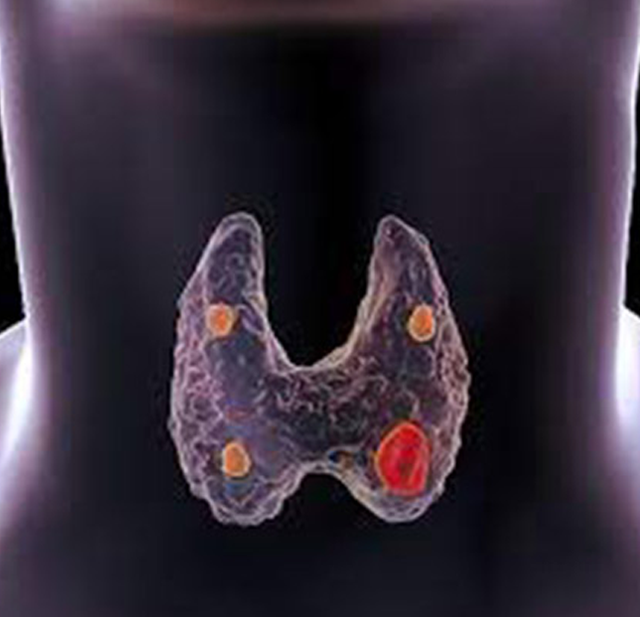
Parathyroid Tumors
Parathyroid tumors are abnormal growths that develop in the parathyroid glands, which are four small glands located behind the thyroid in the neck. These glands play a crucial role in regulating calcium levels in the blood through the production of parathyroid hormone (PTH). Most parathyroid tumors are benign (noncancerous) adenomas, but in rare cases, they can be malignant (cancerous). The exact cause of these tumors is unknown, but risk factors include genetic conditions, radiation exposure, and a family history of parathyroid disorders.
MEN syndromes affecting the parathyroid include MEN1 and MEN2A, both causing primary hyperparathyroidism due to parathyroid hyperplasia or adenomas. MEN1 (mutation in the MEN1 gene) affects the parathyroid, pancreas, and pituitary, while MEN2A (mutation in the RET proto-oncogene) affects the parathyroid, thyroid (medullary thyroid carcinoma), and adrenal glands (pheochromocytoma). Treatment typically involves parathyroidectomy to manage hypercalcemia.
Parathyroid tumors often lead to primary hyperparathyroidism, a condition where excess PTH causes high calcium levels (hypercalcemia) in the blood. This can result in symptoms like bone pain, kidney stones, frequent urination, muscle weakness, fatigue, and digestive issues. In some cases, individuals may experience memory problems, depression, or high blood pressure. Diagnosis typically involves blood tests to measure calcium and PTH levels, imaging scans, and sometimes a biopsy to determine the nature of the tumor.